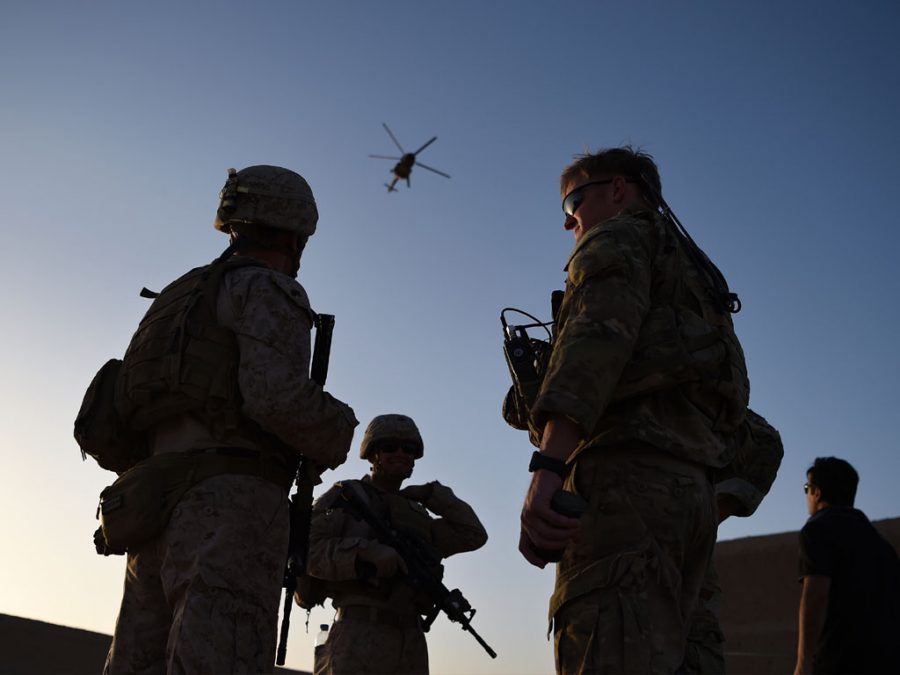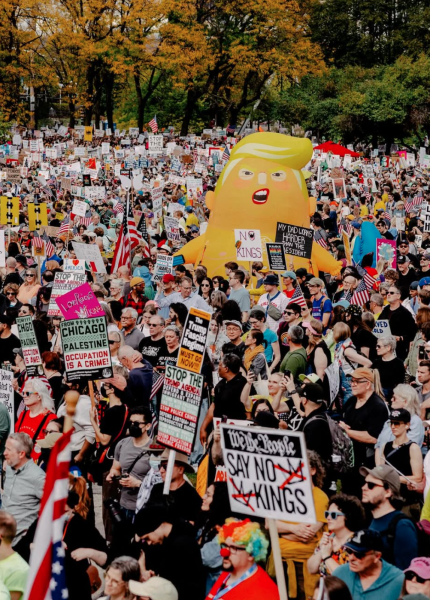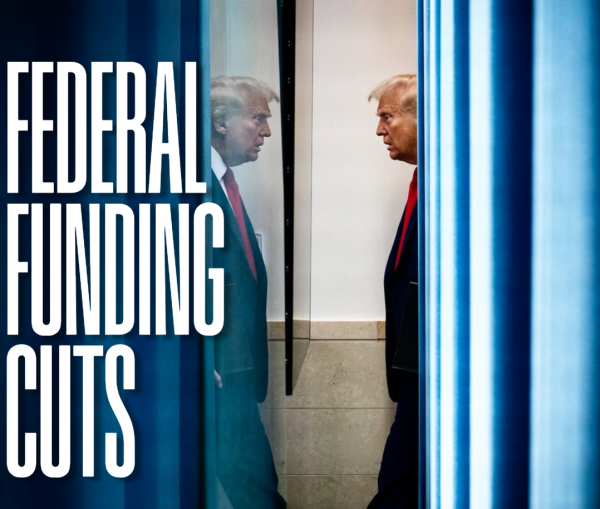The Reality of the Taliban Peace Talks
The war in Afghanistan has been going on for almost 19 years, which means most of us at Fordham don’t remember its beginnings. But on Feb. 29, U.S. Special Envoy Zalmay Khalilzad, accompanied by Secretary of State Mike Pompeo, met with the Taliban to sign a peace deal to end the country’s longest war.
The signing of this deal has been a painfully optimistic ordeal. As President Donald Trump said, “It’s time after all these years to bring our people back home.”
But what does this mean for the fate of the Taliban and Afghanistan? How much trust, if any, can we put into the group that openly supported al-Qaeda and terrorized Afghanistan for much of the 21st century? There are already problems with the deal, and it is starting to look like yet another failed attempt to end this war.
The thing about this deal is it is not so much about bringing peace to Afghanistan as it is about withdrawing from war there. On Friday, March 6, Trump said, “Countries have to take care of themselves. You can only hold someone’s hand for so long.” This is not the rhetoric of a country striving for peace, but rather that of a country tired of dealing with a mess halfway across the world.
Of course, it is understandable why we are eager to withdraw from Afghanistan. Troops have been stationed there since 2001, and yes, Trump is right. At some point leaders need to step up and take responsibility for the chaos in their country. But Afghanistan does not have the resources and strategy to do this, and the U.S. is left with the burden.
It is important to remember that the situation in Afghanistan is partly due to exploitation during the Cold War. The Soviet Union and the U.S. used Afghanistan as a proxy battleground, and the U.S. is responsible for providing funding to the mujahideen, the group from which the Taliban emerged. That, coupled with our invasion after 9/11, shows we have a moral responsibility to finish what we started. If we cannot stop the Taliban, we can at least provide Afghanistan with the resources they need to do it on their own.
Without properly supporting the Afghan army, the Taliban is going to maintain control in Afghanistan. The Taliban has long seen the U.S. and western society as threats to their way of life. Their goal is to rid Afghanistan of western influence, and they view the Afghan government as illegitimate partly because of its connection to the U.S. If the U.S. withdraws, the Taliban may see it as a win and take it as an incentive to step up their attacks against the Afghan government.
There is already evidence of this. A Taliban member allegedly said of the Afghan-Taliban talks, “We will ask the Afghan leadership and other political factions that since the U.S. has accepted us and recognized our position, it is time for you to accept us and give us the country peacefully.” The Taliban clearly has a different plan in mind for these peace deals, and it would be naive to think otherwise.
The biggest affront in the agreement is for the Taliban to cut ties with al-Qaeda. Al-Qaeda and the Taliban have been intertwined since their beginnings: They share a common ideology, enemy and tactics to exert their influence. The Taliban openly sheltered and commended al-Qaeda after their attacks on 9/11. Money, weapons and strategy flow freely between these groups, and it is unlikely that a paper agreement with the U.S. is going to change that.
On top of this, objections from the Afghan government are already thwarting the deal. The Afghan government said it will not release 5,000 Taliban prisoners before the start of intra-Afghan talks, despite it being agreed upon in the peace deal. Tensions between the Afghan government and the Taliban are already high, and there is little evidence that these talks will improve that.
Officials and advisors, such as former White House national security advisors John Bolton and Susan Rice, have criticized the many cracks in the deal. Bolton tweeted, “Legitimizing Taliban sends the wrong signal to ISIS and al Qaeda terrorists, and to America’s enemies generally,” and Rice wrote in The New York Times, “After 14 months, the United States will be left without any military or counterterrorism capacity in Afghanistan, effectively subcontracting America’s security to the Taliban.” There is no way to ensure the Taliban keeps its promise, and, without a military presence, we are powerless if it does not.
I fully support ending the war in Afghanistan, but I am more concerned with achieving peace, or at least a solid plan for peace. There are already inconsistencies in the plan, and the most crucial part — intra-Afghan talks — has not even started yet. If we end the war just to end it, without effective precautionary measures, there will be serious repercussions. It will most likely result in us sending troops back or a civil war breaking out in Afghanistan, which would only create the perfect chaos for terrorist groups to take shelter in.
This deal seems to be a desperate attempt to bring our troops home and end our longest war. On the Afghanistan side of things, this is the difference between peace and civil war. For the U.S., it is the difference between bringing troops home and sending more overseas. For Trump specifically, this could potentially make or break his campaign. He will be either the only president to follow through with his promise to end the war in Afghanistan, or he will be yet another president who spoke too soon. Either way, we have a long and turbulent road to peace in Afghanistan.
Allison Lecce, FCRH ’22, is an international studies major and journalism minor from Westchester, N.Y.








































































































































































































